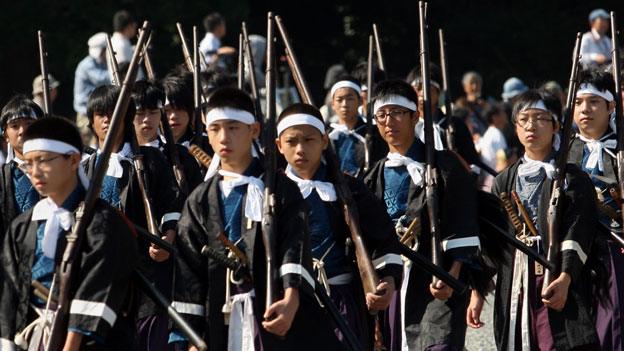Viewpoint: Japan's 'sorry' seems to be the hardest word to remember
- Published
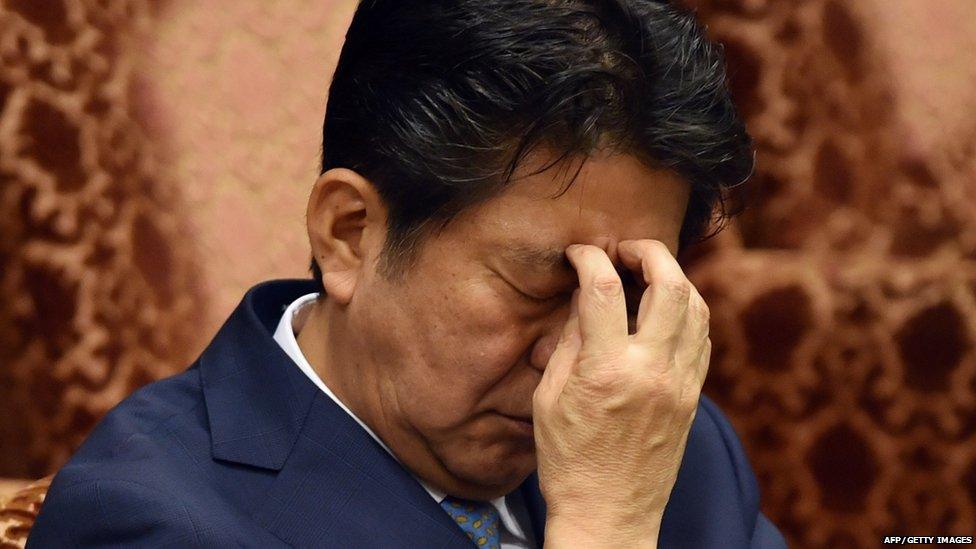
Shinzo Abe: Possibly facing yet another Japanese apology
On Friday, Japanese leader Shinzo Abe will make a speech marking the 70th anniversary of the end of World War Two. Much attention will be on the words he uses, but if the term "sorry" is uttered, it will not be for the first time, reports Robert Dujarric.
Japanese leaders have apologised countless times for the exactions of Imperial Japan.
Besides statements by former Prime Ministers Murayama and Koizumi, Chief Cabinet Secretary Kono, as well as expressions of regrets from the emperor, Japan has paid formal and informal reparations to numerous victims of Japanese aggression.
Yet, the perceived wisdom in many quarters is that Japan has not shown any contrition for the deeds of its empire. These criticisms are always followed by: "Germany, however, has faced its Nazi past honestly, unlike Japan."
There are several reasons for this state of affairs.
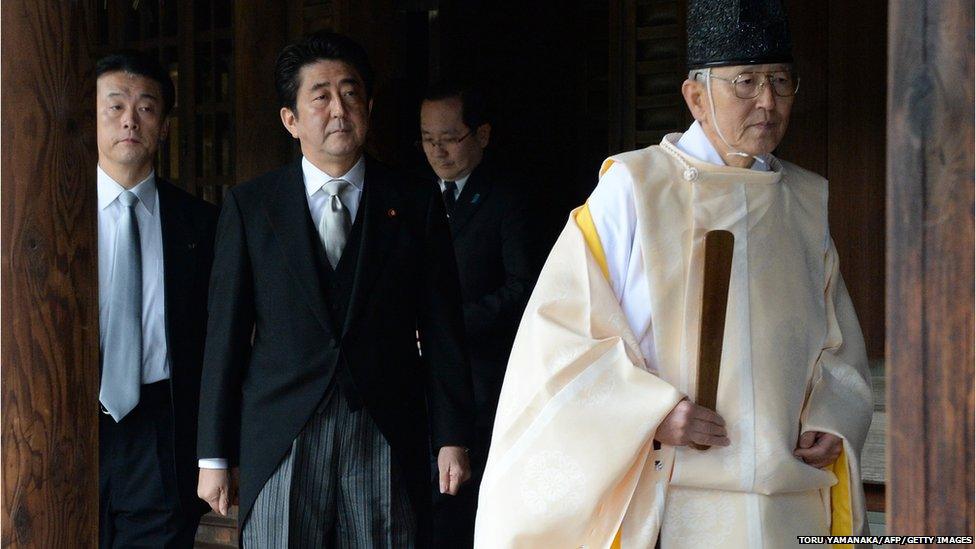
Abe visited the Yasukuni shrine in December 2013, but he was far from the first Japanese PM to do so
Firstly, many Japanese apologies have looked like "one step forward, one step backward".
Senior politicians, including prime ministers, visit the Yasukuni Shrine, where Class A war criminals are sanctified. Some members of the ruling Liberal Democratic Party (including Prime Minister Abe when he was in the opposition) claim that there was no sexual slavery or consort with individuals who refer to the "so-called Nanjing Massacre".
Thus, official Japan lacks "message discipline," a critical skill in the internet age, where even second-rate politicians can get heard worldwide at the speed of light.
Secondly, by world standards, Japan has done a lot of apologising.
It is obviously way ahead of the Chinese Communist Party, whose policies sent tens of millions of Chinese to their deaths, and of Vladimir Putin, who calls the demise of the equally genocidal Soviet Union a tragedy.
But, even compared to Western Europe, when it comes to colonial killings - or the American republics and Australia regarding slavery and the destruction of native societies - Japan is probably above average in the realm of apologies.
But Imperial Japan will always be compared to Nazi Germany, its Axis ally. And, by German standards, Japanese atonement is clearly wanting, whether it be in the scope of statements regarding the past, the behaviour of the political establishment, textbooks, museums, and financial compensation.
Whether he likes it or not, Prime Minister Shinzo Abe is being judged by Willy Brant's standards, not by Xi Jinping's.
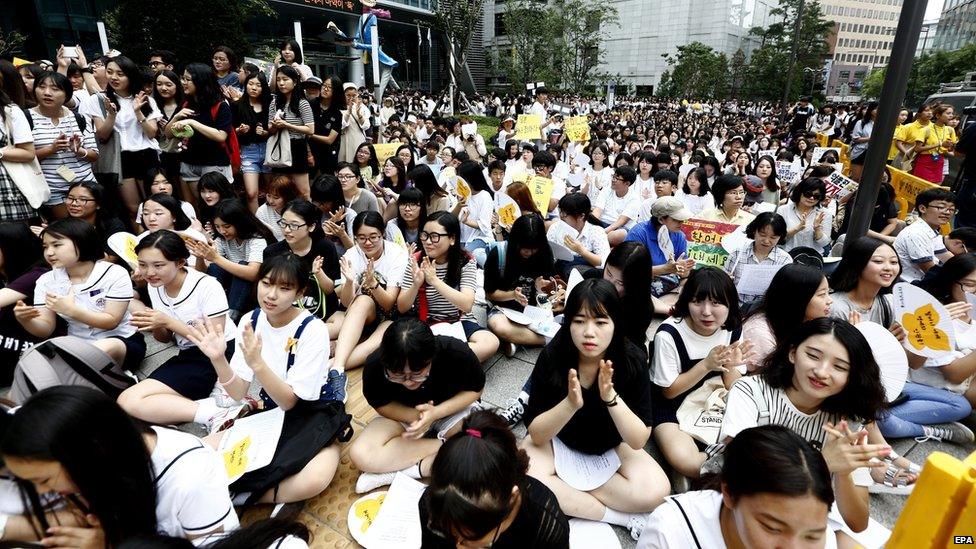
Anti-Japanese sentiment in South Korea has manifested itself in recent protests
Thirdly, the international politics of historical memory are complex.
Japan, as the largest US ally in the region, is an enemy as far as Beijing is concerned. The Chinese Communist Party thus has an interest in Japan looking like an aggressive nation run by war criminal-lovers.
The worse it looks, the better for the People's Republic. Anti-Japanese nationalist propaganda strengthens the legitimacy of the Party and stirs up patriotic fervour.
Moreover, Beijing has an interest in undermining the US position in South Korea. Thus, fostering anti-Japanese feelings in Korea, by emphasising the evil that is Japan, helps China by preventing closer relations between these two American partners in north-east Asia (South Korea and Japan).
Additionally, the political climate in South Korea makes it difficult for Japan to look sincere in its remorse. Many South Korean officials and politicians want stronger ties with Japan. But, for historical reasons, being labelled pro-Japanese is the kiss of death in Korean politics.
Japan's underwhelming apologies - at least by German norms - make South Koreans who want to win elections very wary of looking soft on these issues.
The Japanese claim on the Liancourt Rocks, two islets under South Korean control since the 1950s, also gives many Koreans the impression that Japan is out to attack Korea.
Though nothing could be further from the truth, the inability of Tokyo's leaders to understand how Koreans feel has prevented them from reaching the only logical conclusion, which is to recognise that the Liancourt Rocks will remain Korean.
In the end, Japan is the world's largest sheep in wolf's clothing. Its message mismanagement has convinced many that it is an aggressive polity even though, of the world's 200 countries, it is one of the most peace-loving and non-militaristic nations.
Robert Dujarric is Director of the Institute of Contemporary Asian Studies, Temple University Japan
- Published28 April 2015
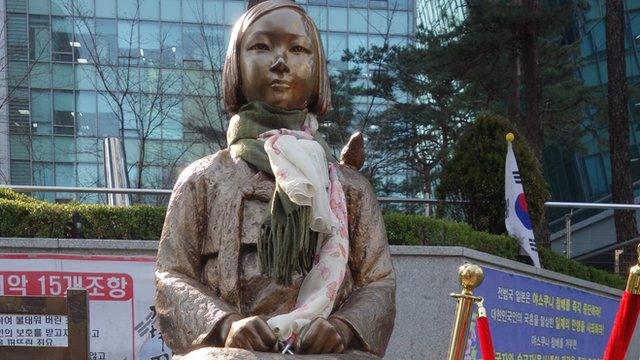
- Published26 December 2013
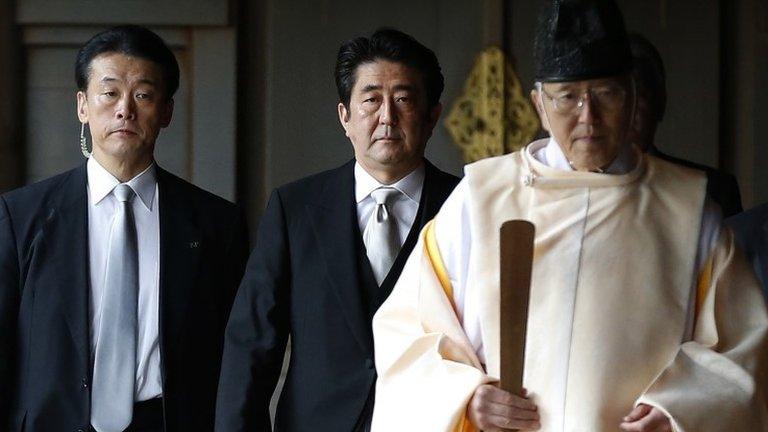
- Published14 March 2013
